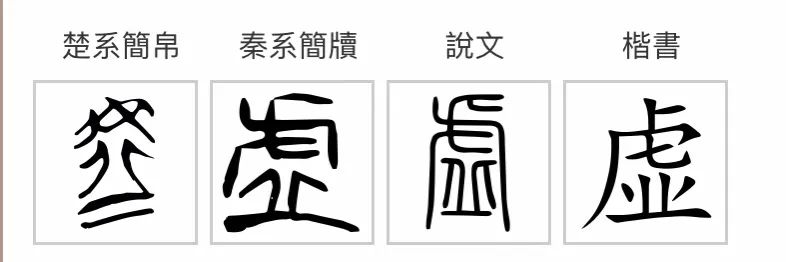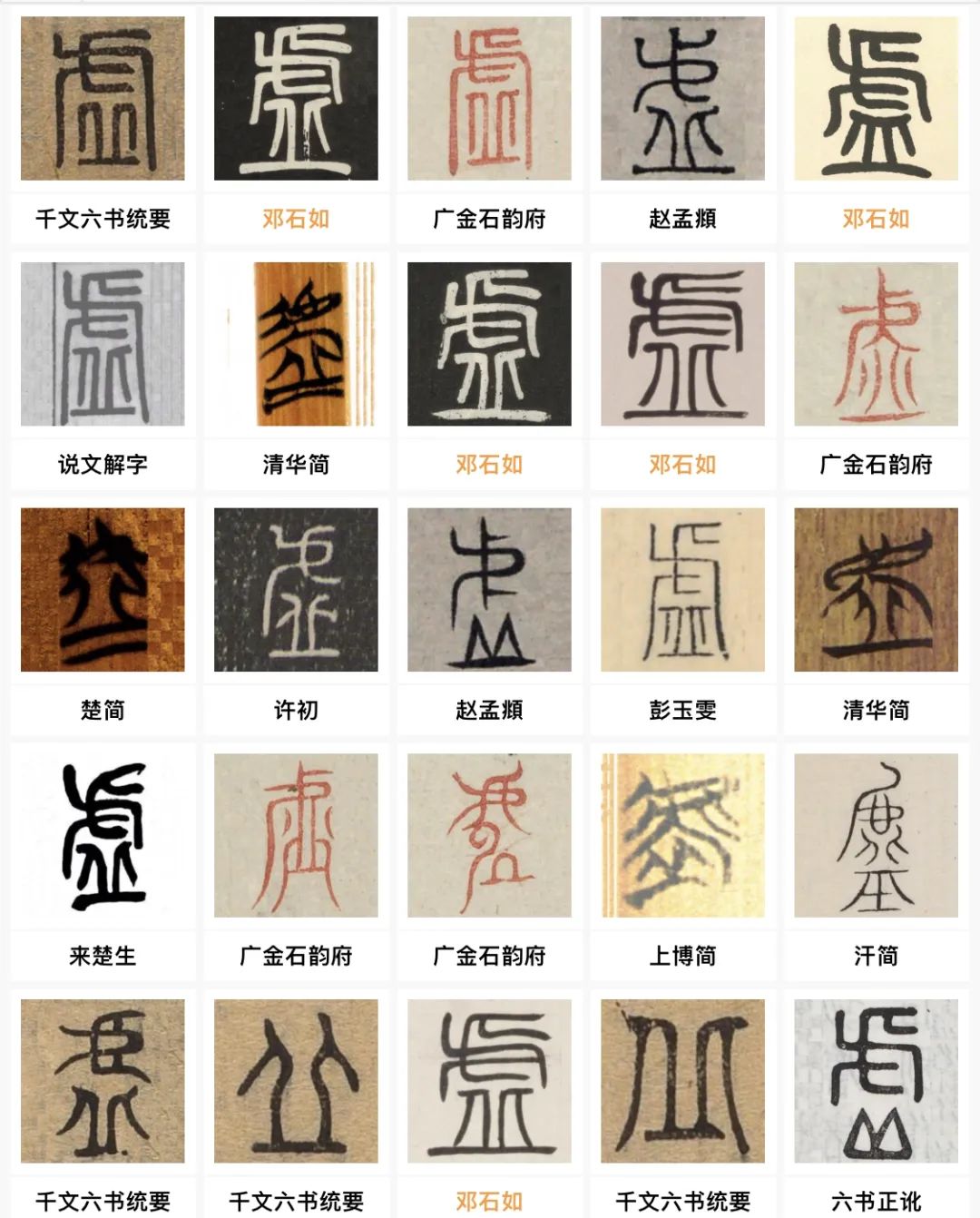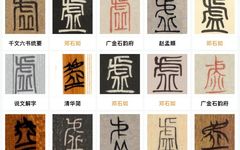Xū (虚) refers to emptiness, derived from the character 虍 (hǔ, tiger skin) and 丘 (qiū, mound). The original meaning of Xū is a desolate area governed by a tiger (土, earth). The character 丘 represents two people fleeing back to back, symbolizing the discord of human hearts (土, heart). The character 虍 is composed of 亻 (rén, person) and 七 (qī, female), indicating the entanglement of male and female. The simplified character for Xū is derived from 虍 and 业 (yè, karma). The tiger skin represents emptiness, and the concept of emptiness is expressed as “when one understands, karmic obstacles are inherently empty; if one does not understand, one must repay past debts.” The tiger, unaware of the karma it creates by consuming humans, is caught in the cycle of reincarnation, hence referred to as the black tiger. The combination of tiger skin and human (人, rén, person; the tiger’s paw resembles a human) forms the tiger. The variant forms of Xū include 上 (shàng, above) and 六 (liù, six). 上 represents light (光, guāng), and 六 signifies the six harmonies; together, they symbolize that all emptiness is light. The light of the heart cannot be grasped, hence the term Xū. When the heart is empty, everything is empty.
 Xū character evolution
Xū character evolution

Xū character in small seal script
Shí (实), composed of 宀 (mián, roof) and 贯 (guàn, to string together). 宀 signifies home or house, while 贯 represents currency or goods. The original meaning of Shí is a home filled with goods. The roof (宀) is empty, and 贯 is a vertical line, indicating that in emptiness, there is still substance, hence the term Shí. The name of the Bodhisattva Subhūti (须菩提) means “born from emptiness”; he is also known as Shànxiàn (善现), meaning that when he was born, the room was filled with treasures, which quickly turned into an empty room. Reality and true suchness refer to the original state of the world, where all things are full yet ultimately empty. The variant form of Shí includes 宀 and 贵 (guì, precious). The original meaning of 贵 is to hold earth with both hands, representing a heart (一心) that is precious. The variant form of 贵 is 尚 (shàng). The character 尚 is composed of 小 (xiǎo, small) and 冋 (jiāo, to return), indicating that true emptiness and spiritual light are precious; what is valued is this emptiness and light, which is Shí. Another variant form of Shí includes 山 (shān, mountain), two people, two suns, and small. Shí signifies that under the spiritual mountain, everyone shines like sunlight. The mountain is represented by a cross, and the combination of mountain, two people, and small forms the character 来 (lái, to come). Shí signifies that the sun comes daily. The sun character is the same as the mouth, indicating emptiness. All things are light, and humans are also light; hence the Buddha said, “Become your own light.” Another variant form of Shí includes 宀, 三 (sān, three), and 人 (rén, person). Three represents Qián (乾, heaven), indicating the unity of heaven and humanity in emptiness.
 Variant forms of Shí
Variant forms of Shí
As the poem states:
“The male and female facing away from each other is called Xū; the unity of heaven and humanity is called Shí.”
“Emptiness gives rise to goodness, speaking of Xū and Shí; the wondrous existence of true emptiness gives birth to the one.”
“The spiritual mountain comes daily; the way is not far, and people are not separated.”
“Xū and Shí are like dew and lightning; heaven reveals the heavenly mechanism.”

